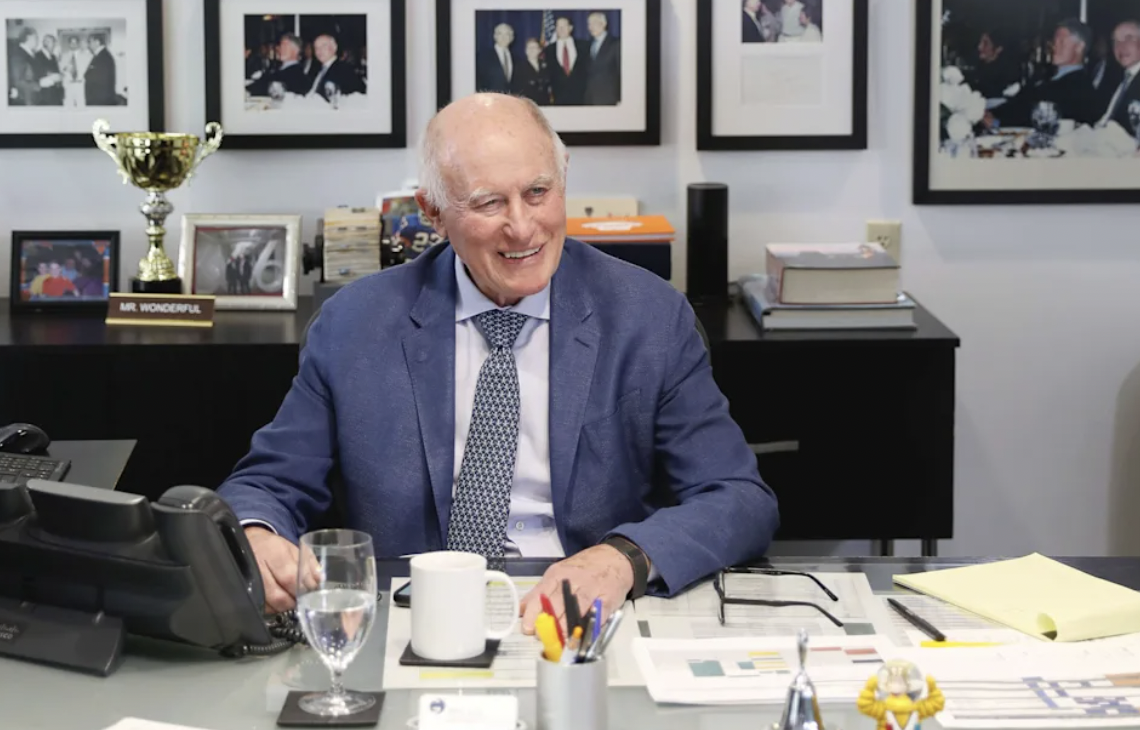87-year-old George Gellert is one of the veteran entrepreneurs in the American food industry. He graduated from Cornell University with three degrees in business, law, and administration in 7 years. He worked at the U.S. Securities and Exchange Commission and the Department of Defense before joining his wife's family's food company in 1965.
Under his leadership, the group expanded from an importer of cheese and canned meat to a supplier of over 6,000 products from more than 60 countries, achieving billions of USD in revenue.
A minute late is an hour late
He believes the secret to success lies not in management books or presentation skills, but in always paying attention to the clock. "My mother used to say, 'If you're a minute late, it's the same as being an hour late'," he said.
A 2024 ResumeBuilder survey found 47% of Gen Z consider arriving 5 to 10 minutes late as still being on time. This percentage drops to 40% for Millennials, 26% for Gen X, and 20% for Baby Boomers.
Another survey by Pew Research found that Gen Z is the least likely generation to value the "9-to-5" rule, with over 60% prioritizing flexible hours as long as the work gets done.
Despite this, Gellert maintains a habit of absolute punctuality. He sets his alarm for 4:45 a.m., calls his business partner Charles Kushner during the first 15 minutes of the day, exercises for an hour, plays tennis until 7:30 a.m., and arrives at the office by 8:00 a.m.
In over 50 years of work, he has never been late for a meeting, even on days when New York was shut down due to blizzards or widespread power outages. His employees recount that Gellert often arrives 15 minutes early for every appointment and considers it a minimum courtesy in business.
A strict schedule also helps him handle crises effectively, especially during the pandemic when global supply chains were severely disrupted.
"Being on time and maintaining routine sounds simple, but for many young people, it's becoming increasingly lax," he said.
 |
Millionaire George Gellert, chairman of Gellert Global Group. Photo: Fortune |
Millionaire George Gellert, chairman of Gellert Global Group. Photo: Fortune
Start low, go long
In 1966, when he first joined Atalanta, his father-in-law's company, he started with the job of opening mail. Though simple and repetitive, this job helped him deeply understand how the business operated. Gellert believes that young people should learn to start from small tasks instead of just looking for high positions.
However, many young people today no longer want to stay with one workplace for a long time. Surveys show that 56% of Gen Z consider changing jobs every two to three years reasonable, mainly to increase income or job title.
According to Gellert, retaining young talent requires businesses to create an environment that helps them grow. They are always looking for a clear path, and if they don't see the next step, they will leave.
Therefore, he pays particular attention to recruitment, prioritizing those with clear career orientations and eliminating unmotivated candidates. Under his leadership, Atalanta grew from a canned meat importer to a billion-dollar enterprise as it entered its 80th year of operation.
"Success shouldn't be measured by recognition from others, but by the accomplishment of personal goals," he said.
Prioritize lasting relationships
In 2012, when Hurricane Sandy devastated the East Coast of the US, Gellert Global Group's warehouse in New Jersey was flooded with about 8 feet of water, causing over 15 million USD in damage. George Gellert, who was managing the business remotely at the time, did not lay off any employees, and after just two weeks, the company fully restored operations.
According to him, the key factor that helped the business overcome the crisis was the pre-established trust between people, from employees to customers and banks. These relationships are not just based on transactions, but also on kinship and personal connections, and that is a solid foundation during any upheaval.
He believes it's not necessary to focus solely on professional skills; invest in integrity and trustworthy relationships. When difficulties arise, those are the true assets that help individuals and organizations stand firm.
This is echoed by reports showing that Gen Z is lacking trust in organizations. A Gallup survey found that only 52% of this generation trusts the leadership where they work, lower than the average of 59%.
While most people of Gellert's generation have retired and left the boardroom, he's not the only one still working. 94-year-old Warren Buffett still holds the role of CEO of Berkshire Hathaway and has only recently planned to retire at the end of this year.
However, both have something in common: maintaining lasting relationships with close associates, like Gellert with Charles Kushner or Buffett with the late businessman Charlie Munger.
Ngoc Ngan (According to Fortune, Gallup)












